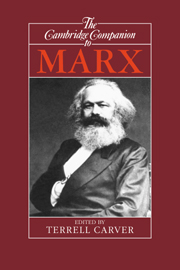6 - Moral philosophy
The critique of capitalism and the problem of ideology
Published online by Cambridge University Press: 28 May 2006
Summary
POINTS OF CONTACT BETWEEN MARXISM AND MORAL PHILOSOPHY
Marxism has made two major contributions to recent moral philosophy. The first has been to stimulate a deep and wide-ranging discussion of the moral status of capitalism, provoked by the attempt to determine whether the Marxian critique of capitalism is a moral critique and, if so, on what moral ideal the critique is based. The second has been to force moral philosophers to confront the problem of ideology. Before sketching out the shape of these contributions and the lessons they bring, let us briefly consider what it is about Marxism and about moral philosophy that makes each subject to the concerns of the other.
First let us look at Marxism, which aims to be a scientific theory of social systems. Although Marx devoted the major portion of his writings to the analysis of one type of social system - capitalism - he tried to develop a science of history, an explanation of how societies arise, persist, and decline. And Marx predicted that capitalism's day would end with a revolution that would supplant it with communism. But Marxism is more than observation, analysis, and prediction. Marx was no neutral observer, no scholarly wallflower. His allegiance was to the working masses whose efforts wring from nature the conditions necessary for the survival and flourishing of every society, and he matched his written work with political activism. Moreover, Marx's partisanship is inextricable from his theoretical writings.
- Type
- Chapter
- Information
- The Cambridge Companion to Marx , pp. 143 - 167Publisher: Cambridge University PressPrint publication year: 1991
- 1
- Cited by

